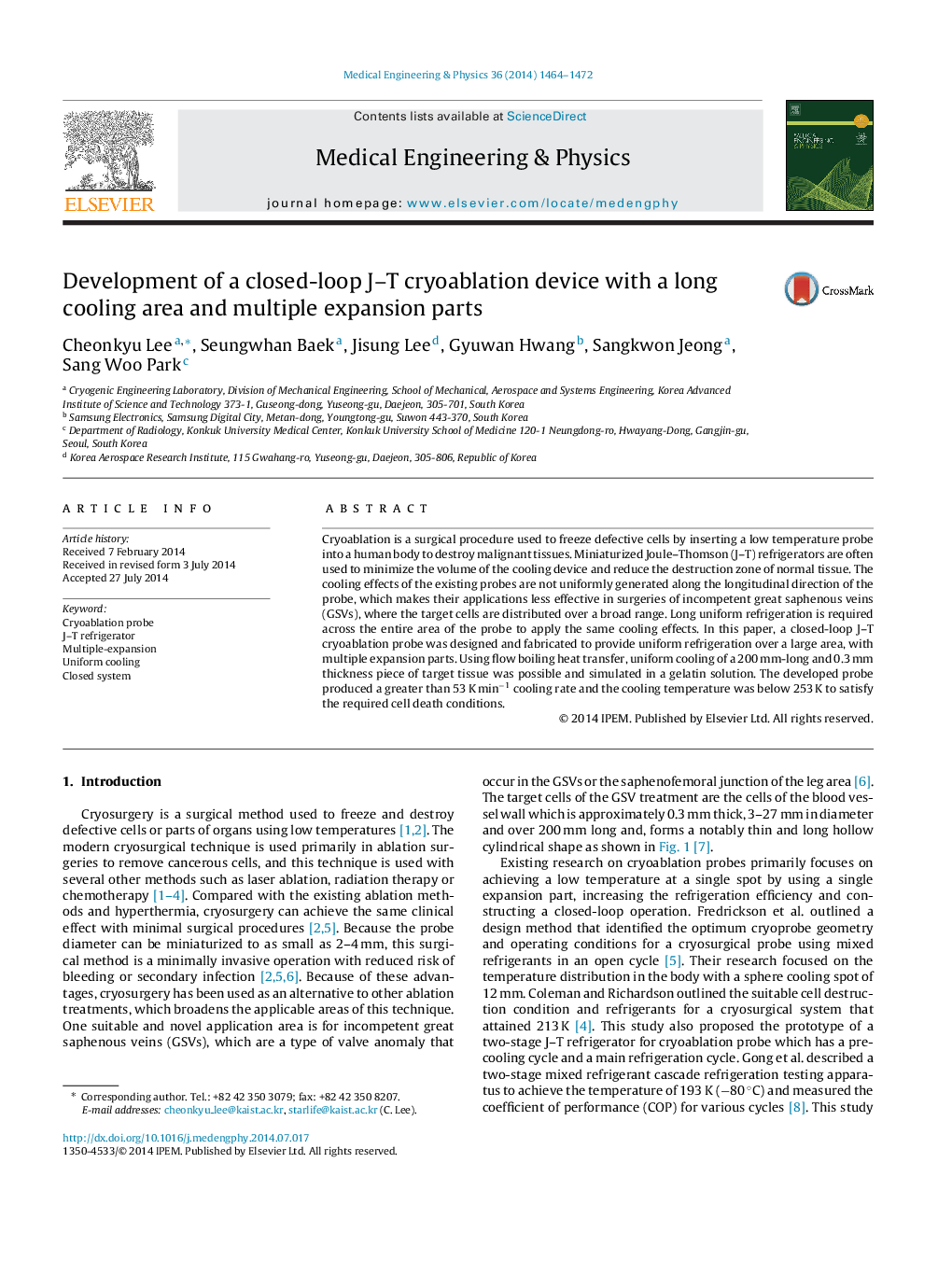| Article ID | Journal | Published Year | Pages | File Type |
|---|---|---|---|---|
| 10435067 | Medical Engineering & Physics | 2014 | 9 Pages |
Abstract
Cryoablation is a surgical procedure used to freeze defective cells by inserting a low temperature probe into a human body to destroy malignant tissues. Miniaturized Joule-Thomson (J-T) refrigerators are often used to minimize the volume of the cooling device and reduce the destruction zone of normal tissue. The cooling effects of the existing probes are not uniformly generated along the longitudinal direction of the probe, which makes their applications less effective in surgeries of incompetent great saphenous veins (GSVs), where the target cells are distributed over a broad range. Long uniform refrigeration is required across the entire area of the probe to apply the same cooling effects. In this paper, a closed-loop J-T cryoablation probe was designed and fabricated to provide uniform refrigeration over a large area, with multiple expansion parts. Using flow boiling heat transfer, uniform cooling of a 200Â mm-long and 0.3Â mm thickness piece of target tissue was possible and simulated in a gelatin solution. The developed probe produced a greater than 53Â KÂ minâ1 cooling rate and the cooling temperature was below 253Â K to satisfy the required cell death conditions.
Keywords
Related Topics
Physical Sciences and Engineering
Engineering
Biomedical Engineering
Authors
Cheonkyu Lee, Seungwhan Baek, Jisung Lee, Gyuwan Hwang, Sangkwon Jeong, Sang Woo Park,
